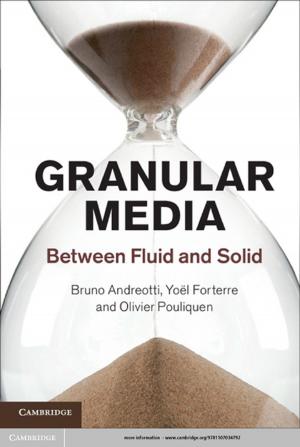Hume and the Politics of Enlightenment
Nonfiction, Social & Cultural Studies, Political Science, Politics, History & Theory, Social Science| Author: | Thomas W. Merrill | ISBN: | 9781316393970 |
| Publisher: | Cambridge University Press | Publication: | July 23, 2015 |
| Imprint: | Cambridge University Press | Language: | English |
| Author: | Thomas W. Merrill |
| ISBN: | 9781316393970 |
| Publisher: | Cambridge University Press |
| Publication: | July 23, 2015 |
| Imprint: | Cambridge University Press |
| Language: | English |
'Methinks I am like a man, who having narrowly escap'd shipwreck', David Hume writes in A Treatise of Human Nature, 'has yet the temerity to put out to sea in the same leaky weather-beaten vessel, and even carries his ambition so far as to think of compassing the globe'. With these words, Hume begins a memorable depiction of the crisis of philosophy and his turn to moral and political philosophy as the path forward. In this groundbreaking work, Thomas W. Merrill shows how Hume's turn is the core of his thought, linking Hume's metaphysical and philosophical crisis to the moral-political inquiries of his mature thought. Merrill shows how Hume's comparison of himself to Socrates in the introduction to the Treatise illuminates the dramatic structure and argument of the book as a whole, and he traces Hume's underappreciated argument about the political role of philosophy in the Essays.
'Methinks I am like a man, who having narrowly escap'd shipwreck', David Hume writes in A Treatise of Human Nature, 'has yet the temerity to put out to sea in the same leaky weather-beaten vessel, and even carries his ambition so far as to think of compassing the globe'. With these words, Hume begins a memorable depiction of the crisis of philosophy and his turn to moral and political philosophy as the path forward. In this groundbreaking work, Thomas W. Merrill shows how Hume's turn is the core of his thought, linking Hume's metaphysical and philosophical crisis to the moral-political inquiries of his mature thought. Merrill shows how Hume's comparison of himself to Socrates in the introduction to the Treatise illuminates the dramatic structure and argument of the book as a whole, and he traces Hume's underappreciated argument about the political role of philosophy in the Essays.















